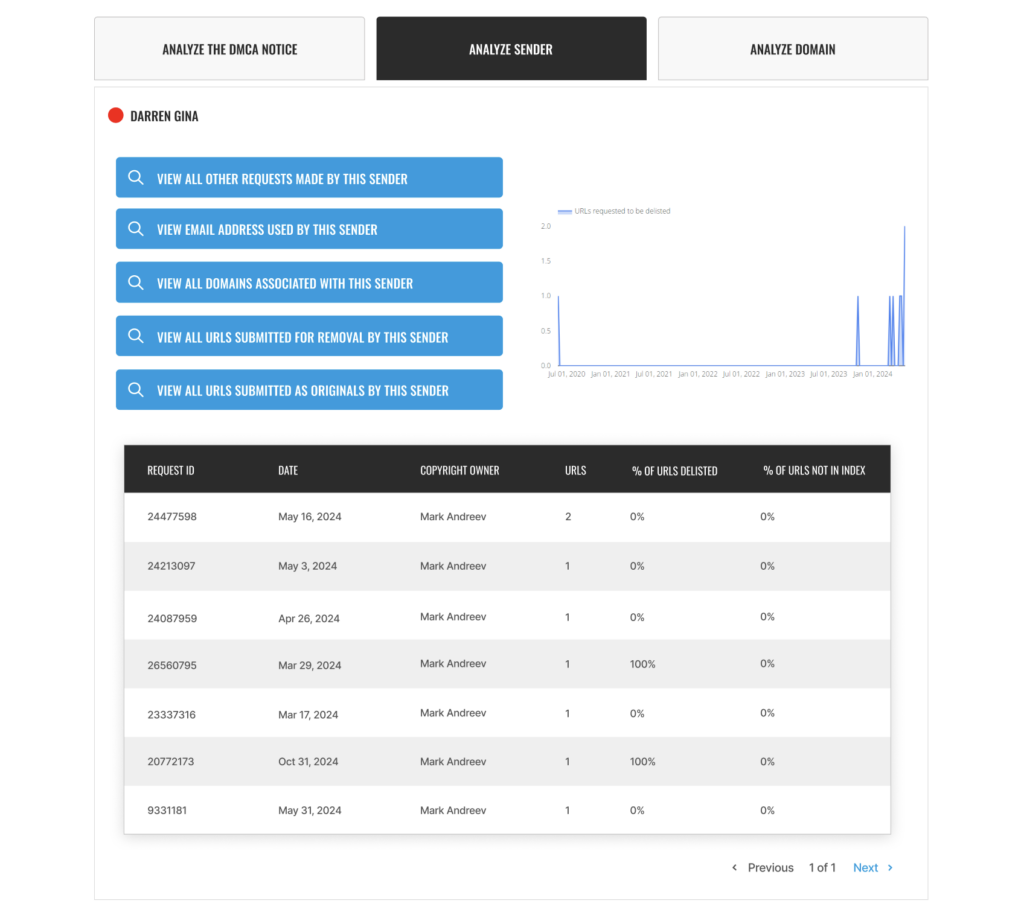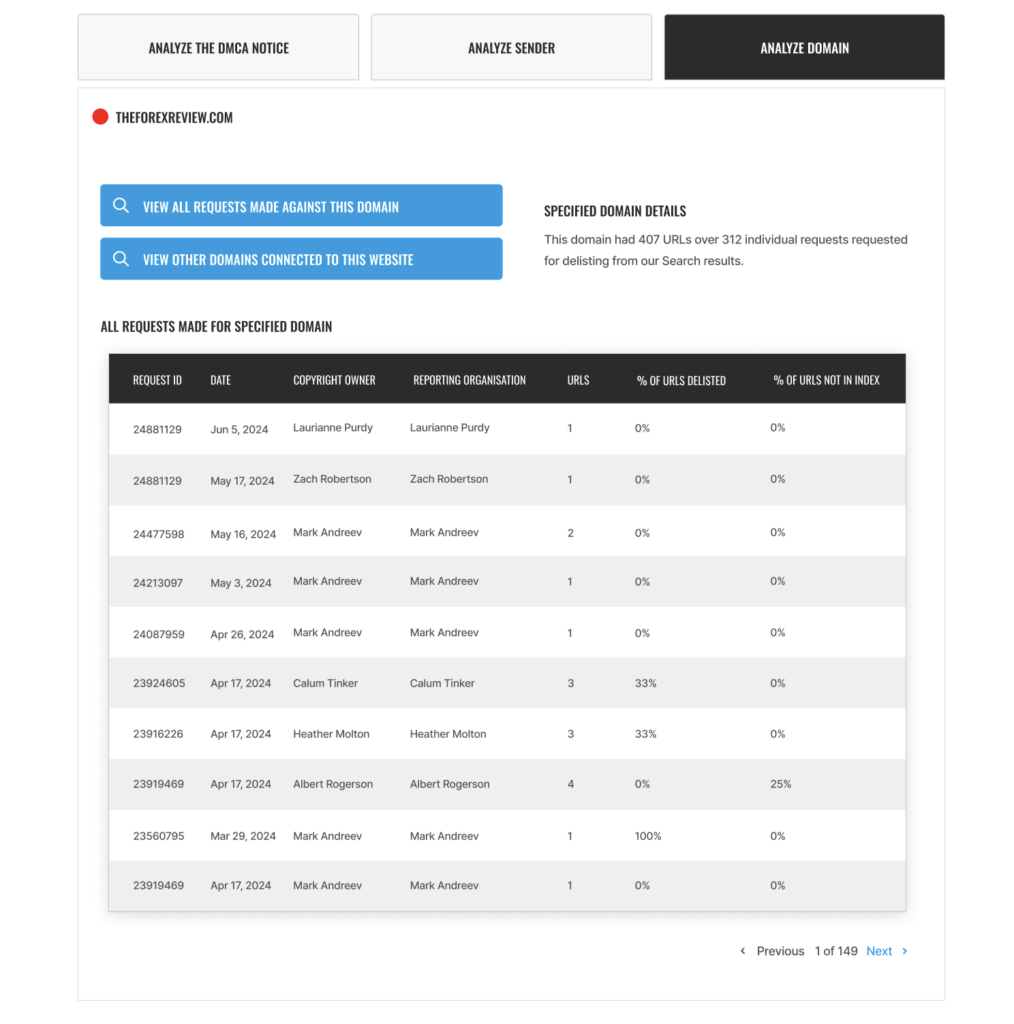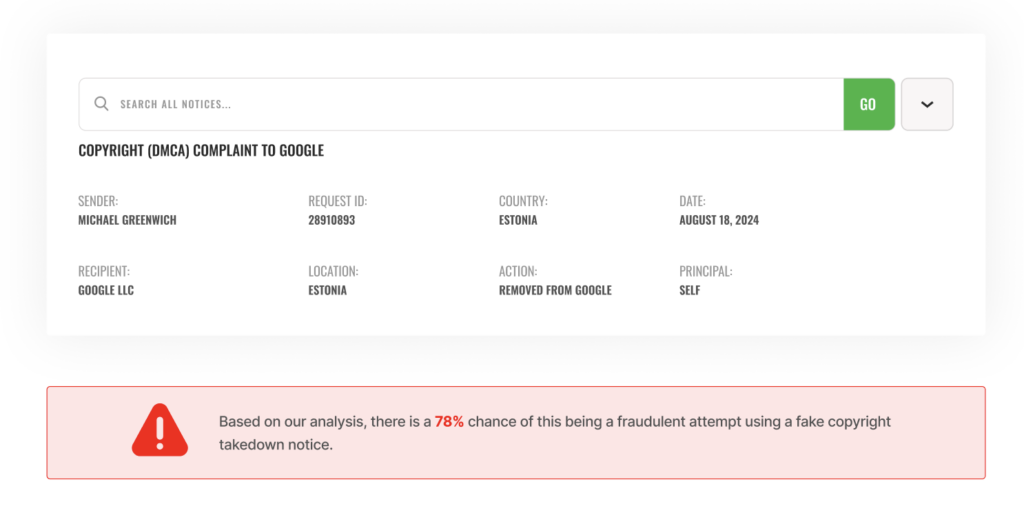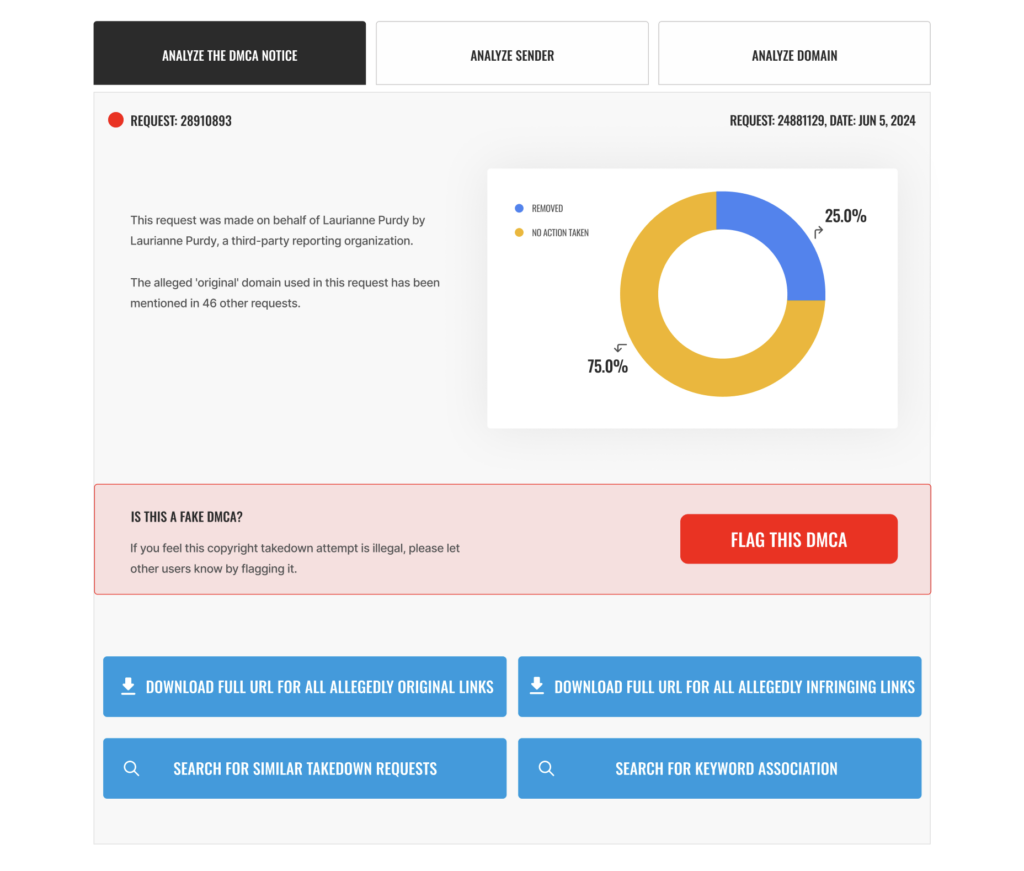Originally Syndicated on September 1, 2024 @ 9:53 pm
What Happened?
Kot4x, an online forex and CFD broker, has recently come under fire for allegedly attempting to suppress information that reveals its questionable practices and shady past. The broker, which operates offshore and is not regulated by any recognized financial authority, has been linked to numerous complaints involving unethical behavior, including issues with fund withdrawals, sudden account closures, and platform manipulation. Many users have reported difficulties accessing their money, with some claiming that the broker refused withdrawals without providing clear explanations.

In addition to these troubling allegations, Kot4x has also been accused of censoring negative reviews and content that exposes its practices. On platforms like Myfxbook, users have highlighted Kot4x’s aggressive efforts to mitigate damaging feedback, often by threatening legal action or leveraging takedown requests to remove negative posts. Such actions indicate a deliberate attempt to keep potential investors in the dark and maintain a façade of reliability, despite the mounting evidence of poor business conduct and customer dissatisfaction. Potential clients should be cautious, understanding that the broker’s apparent efforts to conceal its past may reflect deeper, systemic issues within the company.

Analyzing the Fake Copyright Notice(s)
Our team collects and analyses fraudulent copyright takedown requests, legal complaints, and other efforts to remove critical information from the internet. Through our investigative reporting, we examine the prevalence and operation of an organized censorship industry, predominantly funded by criminal entities, oligarchs, and disreputable businesses or individuals. Our findings allow internet users to gain insight into these censorship schemes’ sources, methods, and underlying objectives.
List of Fake Copyright Notices for KOT4X
| Number of Fake DMCA Notice(s) | 1 |
| Lumen Database Notice(s) | https://lumendatabase.org/notices/44007488 |
| Sender(s) | ApexLink Technologies LLC. |
| Date(s) | Aug 22, 2024 |
| Fake Link(s) Used by Scammers | https://kot4x.com/ |
| Original Link(s) Targeted | https://www.myfxbook.com/reviews/brokers/kot4x/1760787,1 |
Evidence and Screenshots

How do we investigate fake DMCA notices?
To accomplish this, we utilize the OSINT Tool provided by FakeDMCA.com and the Lumen API for Researchers, courtesy of the Lumen Database.
FakeDMCA.com is the work of an independent team of research students and cybersecurity professionals, developed under Project UnCensor. Their OSINT Tool, designed to uncover and analyze takedown notices, represents a significant step forward in combating these abusive practices. It has become a valuable resource, increasingly relied upon by journalists and law enforcement agencies across the United States.
Lumen, on the other hand, is an independent research initiative dedicated to studying takedown notices and other legal demands related to online content removal. The project, which operates under the Berkman Klein Center for Internet & Society at Harvard University, plays a crucial role in tracking and understanding the broader implications of such requests.
What was KOT4X trying to hide?
Kot4x is an online forex and CFD broker that offers trading in various financial instruments, including forex, cryptocurrencies, commodities, and indices. It operates as an offshore broker and is registered in St. Vincent and the Grenadines, which is known for its lenient regulatory requirements. Kot4x markets itself as a broker providing advanced trading tools and competitive spreads; however, it is not regulated by any well-established financial authority, which raises questions about the level of investor protection it offers.
Adverse News, Bad Reviews, Complaints, Allegations, and Documents
Kot4x has been the subject of various adverse reports, negative reviews, complaints, and allegations, which the broker appears to be trying to suppress. These issues include:
- Lack of Regulation: Kot4x is registered in an offshore jurisdiction with lax regulatory oversight, which means it is not governed by the stringent requirements of recognized financial authorities like the Financial Conduct Authority (FCA) or the Australian Securities and Investments Commission (ASIC). This lack of regulation has raised concerns about the safety of funds, transparency, and the level of recourse available to traders in case of disputes.
- Withdrawal Issues and Fund Accessibility: A significant number of complaints revolve around issues with fund withdrawals. Clients have reported long delays, unexpected fees, or even outright denial of withdrawal requests without adequate explanation. These problems have left many traders unable to access their money, raising suspicions about the broker’s liquidity and financial integrity.
- Account Manipulation and Platform Issues: There have been multiple allegations of Kot4x manipulating client accounts, including sudden price spikes and platform freezing during key market events. Such practices can result in significant losses for traders and suggest that the broker might be engaging in activities to profit at the expense of its clients.
- Unethical Business Practices: Some users have accused Kot4x of using aggressive sales tactics, including high-pressure calls to persuade clients to deposit more funds. Additionally, there are reports of account managers making unrealistic promises of high returns, which later turned out to be false. These tactics often target inexperienced traders who may not fully understand the risks involved, leading to significant financial losses.
- Negative Reviews and Alleged Censorship Attempts: On platforms like Myfxbook, several negative reviews have highlighted Kot4x’s lack of responsiveness to client concerns and poor customer service. The broker has also been accused of attempting to suppress negative reviews by threatening legal action or requesting content removal. Such attempts to control public perception suggest that Kot4x is trying to hide the true nature of its operations and prevent potential clients from accessing honest feedback from existing users.
- Association with Scam Brokers: Some evidence suggests possible links between Kot4x and other known scam brokers, raising further doubts about the broker’s legitimacy. These associations point to a broader network of fraudulent operations that exploit unsuspecting investors, which further tarnishes Kot4x’s reputation.
- Unclear Terms and Conditions: Another common complaint involves the lack of transparency in Kot4x’s terms and conditions, especially regarding fees and trading conditions. Users have reported unexpected deductions and changes in margin requirements without prior notice. This opacity in operations is a major red flag for traders looking for a reliable and trustworthy broker.
Given these allegations and negative experiences reported by numerous clients, Kot4x’s credibility as a broker is questionable. The company’s attempts to hide adverse news and censor unfavorable reviews indicate a deliberate effort to maintain a façade of reliability while concealing deeper systemic issues that can be detrimental to traders. Investors are advised to exercise caution and consider alternative brokers that operate under strict regulatory oversight and have a track record of transparency and fair practices.
Only KOT4X benefits from this crime.

Since the fake copyright takedown notices were designed to remove negative content for KOT4X from Google, we assume KOT4X or someone associated with KOT4X is behind this scam. It is often a fly-by-night Online Reputation agency working on behalf of KOT4X. In this case, KOT4X, at best, will be an “accomplice” or an “accessory” to the crime. The specific laws may vary depending on the jurisdiction. Still, the legal principle generally holds that if you actively participate in planning, encouraging, or facilitating a crime, you can be charged with it, even if you did not personally commit it.
How do we counteract this malpractice?
Once we ascertain the involvement of KOT4X (or actors working on behalf of KOT4X), we will inform KOT4X of our findings via Electronic Mail.
Our preliminary assessment suggests that KOT4X may have engaged a third-party reputation management agency or expert, which, either independently or under direct authorization from KOT4X, initiated efforts to remove adverse online content, including potentially fraudulent DMCA takedown requests. We will extend an opportunity to KOT4X to provide details regarding their communications with the agency or expert, as well as the identification of the individual(s) responsible for executing these false DMCA notices.
Failure to respond in a timely manner will necessitate a reassessment of our initial assumptions. In such an event, we will be compelled to take appropriate legal action to rectify the unlawful conduct and take the following steps –
- Inform Google about the fraud committed against them.
- Inform the victims of the fake DMCA about their websites.
- Inform relevant law enforcement agencies
- File counter-notices on Google to reinstate the ‘removed’ content
- Publish copies of the ‘removed’ content on our network of 50+ websites
By investigating the fake DMCA takedown attempts, we hope to shed light on the reputation management industry, revealing how KOT4X and companies like it may use spurious copyright claims and fake legal notices to remove and obscure articles linking them to allegations of fraud, tax avoidance, corruption, and drug trafficking…
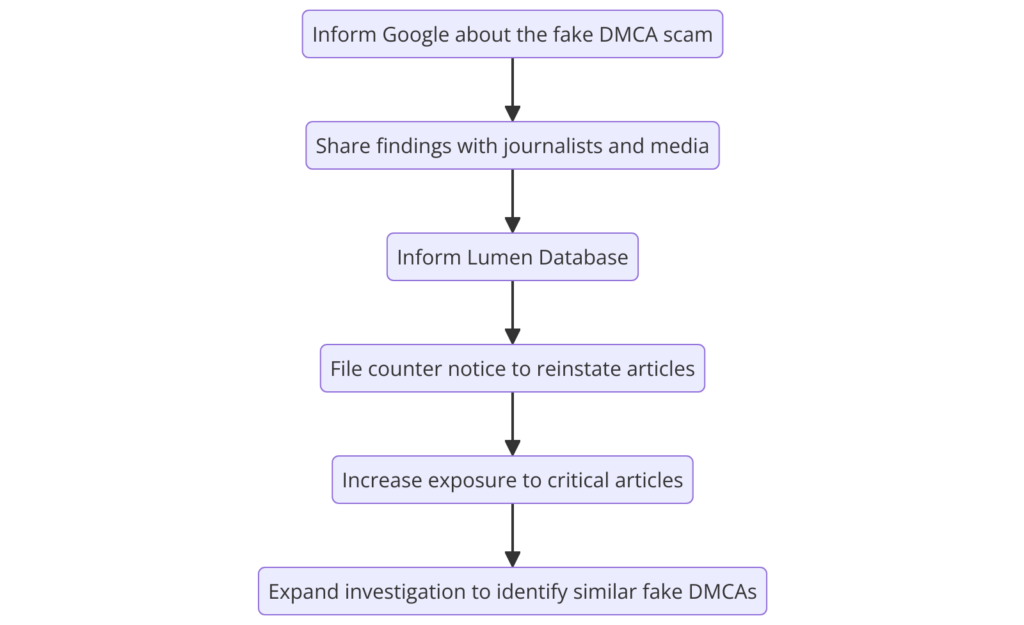
Since KOT4X made such efforts to hide something online, it seems fit to ensure that this article and our original review of KOT4X, including but not limited to user contributions, remain a permanent record for anyone interested in KOT4X.
A case perfect for the Streisand effect…
Potential Consequences for KOT4X
Under Florida Statute 831.01, the crime of Forgery is committed when a person falsifies, alters, counterfeits, or forges a document that carries “legal efficacy” with the intent to injure or defraud another person or entity.
Forging a document is considered a white-collar crime. It involves altering, changing, or modifying a document to deceive another person. It can also include passing along copies of documents that are known to be false. In many states in the US, falsifying a document is a crime punishable as a felony.

Additionally, under most laws, “fraud on the court” is where “a party has sentiently set in motion some unconscionable scheme calculated to interfere with the judicial system’s ability impartially to adjudicate a matter by improperly influencing the trier of fact or unfairly hampering the presentation of the opposing party’s claim or defense.” Cox v. Burke, 706 So. 2d 43, 46 (Fla. 5th DCA 1998) (quoting Aoude v. Mobil Oil Corp., 892 F.2d 1115, 1118 (1st Cir. 1989)).
Is KOT4X Committing a Cyber Crime?
Yes, it seems so. KOT4X used multiple approaches to remove unwanted material from review sites and Google’s search results. Thanks to protections allowing freedom of speech in the United States, there are very few legal ways to do this. KOT4X could not eliminate negative reviews or search results that linked to them without a valid claim of defamation, copyright infringement, or some other clear breach of the law.
Faced with these limitations, some companies like KOT4X have gone to extreme lengths to fraudulently claim copyright ownership over a negative review in the hopes of taking it down.
Fake DMCA notices have targeted articles highlighting the criminal activity of prominent people to hide their illegal behavior. These people, which include US, Russian, and Khazakstani politicians as well as members from elite circles including the mafia and those with massive financial power, are all connected – and alleged corruption ranging from child abuse to sexual harassment is exposed when exploring evidence found at these URLs. It appears there’s a disturbing level of influence being exerted here that needs further investigation before justice can be served. KOT4X is certainly keeping interesting company here….

The DMCA takedown process requires that copyright owners submit a takedown notice to an ISP identifying the allegedly infringing content and declaring, under penalty of perjury, that they have a good faith belief that the content is infringing. The ISP must then promptly remove or disable access to the content. The alleged infringer can then submit a counter-notice, and if the copyright owner does not take legal action within 10 to 14 days, the ISP can restore the content.
Since these platforms are predominantly based in the U.S., the complaints are typically made under the Digital Millennium Copyright Act (DMCA), which requires online service providers and platforms to react immediately to reports or violations. Big Tech companies rarely have systems in place to assess the merit of each report. Instead, all bad actors need to do is clone a story, backdate it, and then demand the real thing be taken down.
Reputation Agency’s Modus Operandi
The fake DMCA notices we found always use the “back-dated article” technique. With this technique, the wrongful notice sender (or copier) creates a copy of a “true original” article and back-dates it, creating a “fake original” article (a copy of the true original) that, at first glance, appears to have been published before the true original.

Then, based on the claim that this backdated article is the “original,” the scammers send a DMCA to the relevant online service providers (e.g. Google), alleging that the ‘true’ original is the copied or “infringing” article and that the copied article is the “original,” requesting the takedown of the ‘true’ original article. After sending the DMCA request, the person who sent the wrong notice take





